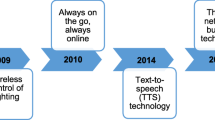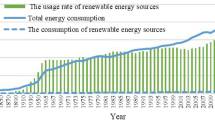Abstract
The short-term forecasting of multiple loads is crucial for the optimization and scheduling of integrated energy system (IES). However, the load within the IES exhibits diversified and strongly coupled characteristics, which seriously affects the forecast accuracy. Moreover, only using deep learning forecasting methods cannot analyze the factors that affect the forecast results, which is not conducive to guiding the optimization and scheduling of comprehensive energy systems. Therefore, a multivariate load forecasting model based on knowledge-guided multi-task spatial-temporal synchronous graph convolutional network is proposed. Firstly, the user clusters are classified according to the energy-using characteristics of different buildings. Then, the domain knowledge base is built by combining the dimensionless trends of different groups and expert experience. At the same time, the input features are filtered based on the improved maximum information coefficient method to construct spatial-temporal graph data, forming a more refined and efficient input sample data. Finally, the knowledge-data fusion model for multivariate load forecasting is constructed to predict local fluctuations of the multivariate load series and reconstruct the load ratio. The IES data set of Arizona State University Tempe Campus is taken as a test case. The results show that the proposed method is interpretable, has higher forecast accuracy and has better generalization ability.
摘要
多元负荷的短期预测对于综合能源系统(IES)的优化调度至关重要。但是, 综合能源系统负荷呈现多元化、**耦合特征, 严重影响了预测精度。以往仅仅使用深度学**预测方法无法对预测结果的影响因素进行解释, 不利于指导综合能源系统的优化调度。为此, 提出了一种基于知识引导的多任务时空同步图卷积网络的多元负荷预测模型。首先, 根据不同建筑的能源使用特征对用户集群进行分类。然后, 结合不同群体的无量纲趋势和专家经验, 建立领域知识库。同时, 基于改进的最大信息系数法对输入特征进行筛选, 构建时空图数据, 形成更为精细、高效的输入样本数据。最后, 构建了多变量负荷预测的知识-数据融合模型, 用于预测多变量负荷序列的局部波动, 重构负荷比, 负荷比与前一时刻数据相乘即可得到多元负荷的预测结果。以亚利桑那州立大学坦佩校区IES数据集作为测试案例。结果表明, 该方法具有可解释性、较高的预测精度和较好的泛化能力。
Similar content being viewed by others
References
SUGANTHI L, SAMUEL A A. Energy models for demand forecasting —a review [J]. Renewable & Sustainable Energy Reviews, 2012, 16: 1223–1240.
WU D, LIN W X. Efficient residential electric load forecasting via transfer learning and graph neural networks [J]. IEEE Transactions on Smart Grid, 2023, 14(3): 2423–2431.
WAN A P, YANG J, MIAO X, et al. Boiler load forecasting of CHP plant based on attention mechanism and deep neural network [J]. Journal of Shanghai Jiao Tong University, 2023, 57(3): 316–325 (in Chinese).
LI S W, KONG X Y, YUE L, et al. Short-term electrical load forecasting using hybrid model of manta ray foraging optimization and support vector regression [J]. Journal of Cleaner Production, 2023, 388: 135856.
LI H J, ZHU J H, FU X F, et al. Ultra-short-term load forecasting of electric vehicle charging stations based on ensemble learning [J]. Journal of Shanghai Jiao Tong University, 2022, 56(8): 1004–1013 (in Chinese).
ZHANG X B, WANG J Z, ZHANG K Q. Short-term electric load forecasting based on singular spectrum analysis and support vector machine optimized by Cuckoo search algorithm [J]. Electric Power Systems Research, 2017, 146: 270–285.
ZHU J Z, DONGH J, ZHENG W Y, et al. Review and prospect of data-driven techniques for load forecasting in integrated energy systems [J]. Applied Energy, 2022, 321: 119269.
ZAMBRANO-ASANZA S, MORALES R E, MONTALVAN J A, et al. Integrating artificial neural networks and cellular automata model for spatial-temporal load forecasting [J]. International Journal of Electrical Power & Energy Systems, 2023, 148: 108906.
LIN J, MA J, ZHU J G, et al. Short-term load forecasting based on LSTM networks considering attention mechanism [J]. International Journal of Electrical Power & Energy Systems, 2022, 137: 107818.
LU S X, XU Q F, JIANG C X, et al. Probabilistic load forecasting with a non-crossing sparse-group Lasso-quantile regression deep neural network [J]. Energy, 2022, 242: 122955.
QUILUMBA F L, LEE W J, HUANG H, et al. Using smart meter data to improve the accuracy of intraday load forecasting considering customer behavior similarities [J]. IEEE Transactions on Smart Grid, 2015, 6(2): 911–918.
MADHUKUMAR M, SEBASTIAN A, LIANG X D, et al. Regression model-based short-term load forecasting for university campus load [J]. IEEE Access, 2022, 10: 8891–8905.
CHEN B J, CHANG M W, LIN C J. Load forecasting using support vector Machines: A study on EUNITE competition 2001 [J]. IEEE Transactions on Power Systems, 2004, 19(4): 1821–1830.
CHEN Y, LUH P B, GUAN C, et al. Short-term load forecasting: Similar day-based wavelet neural networks [J]. IEEE Transactions on Power Systems, 2010, 25(1): 322–330.
SHI Y W, LIU Z Y, FENG D H, et al. Electric vehicle charging situation awareness for ultra-short-term load forecast of charging stations [J]. Journal of Shanghai Jiao Tong University (Science), 2023, 28(1): 28–38.
LING S H, LEUNG F H F, LAM H K, et al. A novel genetic-algorithm-based neural network for short-term load forecasting [J]. IEEE Transactions on Industrial Electronics, 2003, 50(4): 793–799.
ZHANG Z L, ZHANG Z N, EIKEVIK T M, et al. Ventilation system heating demand forecasting based on long short-term memory network [J]. Journal of Shanghai Jiao Tong University (Science), 2021, 26(2): 129–137.
MOUNIR N, OUADI H, JRHILIFA I. Short-term electric load forecasting using an EMD-BI-LSTM approach for smart grid energy management system [J]. Energy and Buildings, 2023, 288: 113022.
ZHANG P F, HU B, HE J S, et al. Short-term spatial load forecasting method based on spatio-temporal graph convolutional network [J/OL]. Automation of Electric Power Systems, 2023, 47(13): 78–85.
DUDEK G. Pattern-based local linear regression models for short-term load forecasting [J]. Electric Power Systems Research, 2016, 130: 139–147.
WANG X, WANG S X, ZHAO Q Y, et al. A multi-energy load prediction model based on deep multi-task learning and ensemble approach for regional integrated energy systems [J]. International Journal of Electrical Power & Energy Systems, 2021, 126: 106583.
LIU H M, TANG Y, PU Y, et al. Short-term load forecasting of multi-energy in integrated energy system based on multivariate phase space reconstruction and support vector regression mode [J]. Electric Power Systems Research, 2022, 210: 108066.
LYU Z L, GU J, MENG L. Short-term load forecasting for integrated energy system based on coupling features and multi-task learning [J]. Automation of Electric Power Systems, 2022, 46(11): 58–66 (in Chinese)
SHI J Q, TAN T, GUO J, et al. Multi-task learning based on deep architecture for various types of load forecasting in regional energy system integration [J]. Power System Technology, 2018, 42(3): 698–707 (in Chinese).
ZHANG Z, LIU J, PANG S, et al. General short-term load forecasting based on multi-task temporal convolutional network in COVID-19 [J]. International Journal of Electrical Power & Energy Systems, 2022, 147: 108811.
NIU D, YU M, SUN L J, et al. Short-term multi-energy load forecasting for integrated energy systems based on CNN-BiGRU optimized by attention mechanism [J]. Applied Energy, 2022, 313: 118801.
TAN Z, DE G, LI M, et al. Combined electricity-heat-cooling-gas load forecasting model for integrated energy system based on multi-task learning and least square support vector machine [J]. Journal of Cleaner Production, 2020, 248: 119252.
ZHONG G Y, TAI N L, HUANG W T, et al. Attention short-term forecasting method of distribution load based on multi-dimensional clustering [J]. Journal of Shanghai Jiao Tong University, 2021, 55(12): 1532–1543 (in Chinese).
HU M M, STEPHEN B, BROWELL J, et al. Impacts of building load dispersion level on its load forecasting accuracy: Data or algorithms? Importance of reliability and interpretability in machine learning [J]. Energy and Buildings, 2023, 285: 112896.
WANG N Z, ZHANG D X, CHANG H B, et al. Deep learning of subsurface flow via theory-guided neural network [J]. Journal of Hydrology, 2020, 584: 124700.
QIAO M J, HE X H, CHENG X J, et al. KSTAGE: A knowledge-guided spatial-temporal attention graph learning network for crop yield prediction [J]. Information Sciences, 2023, 619(C): 19–37.
ATWYA M, PANOUTSOS G. Structure optimization of prior-knowledge-guided neural networks [J]. Neurocomputing, 2022, 491: 464–488.
SONG C, LIN Y F, GUO S N, et al. Spatial-temporal synchronous graph convolutional networks: A new framework for spatial-temporal network data forecasting [J]. Proceedings of the AAAI Conference on Artificial Intelligence, 2020, 34(1): 914–921.
KHODAYAR M, WANG J H. Spatio-temporal graph deep neural network for short-term wind speed forecasting [J]. IEEE Transactions on Sustainable Energy, 2019, 10(2): 670–681.
YANG Y, TAO Z H, QIAN C, et al. A hybrid robust system considering outliers for electric load series forecasting [J]. Applied Intelligence, 2022, 52(2): 1630–1652.
BIAN H H, ZHONG Y Q, SUN J S, et al. Study on power consumption load forecast based on K-means clustering and FCM-BP model [J]. Energy Reports, 2020, 6: 693–700.
CHEN Y T, ZHANG D X. Theory-guided deep-learning for electrical load forecasting (TgDLF) via ensemble long short-term memory [J]. Advances in Applied Energy, 2021, 1: 100004.
BEDI J, TOSHNIWAL D. Deep learning framework to forecast electricity demand [J]. Applied Energy, 2019, 238: 1312–1326.
ZHANG Y, YANG Q. An overview of multi-task learning [J]. National Science Review, 2018, 5(1): 30–43.
LU Y T, WANG G C, HUANG S Q. A short-term load forecasting model based on mixup and transfer learning [J]. Electric Power Systems Research, 2022, 207: 107837.
WU C, YAO J, XUE G Y, et al. Load forecasting of integrated energy system based on MMoE multi-task learning and LSTM [J]. Electric Power Automation Equipment, 2022, 42(7): 33–39 (in Chinese).
LU B, HUO Z J, YU M. Multi load ultra short-term forecasting of integrated energy system based on LSTNet-skip [J]. Proceedings of the CSEE, 2023, 43(6): 2273–2283 (in Chinese).
ZHANG S Y, CHEN R H, CAO J C, et al. A CNN and LSTM-based multi-task learning architecture for short and medium-term electricity load forecasting [J]. Electric Power Systems Research, 2023, 222: 109507.
MIAO L, LI Q, JIANG Y, et al. A survey of power system prediction based on deep learning [J]. Chinese Journal of Engineering, 2023, 45(4): 663–672 (in Chinese).
Acknowledgment
The authors thank Dr. Li Hengjie and Dr. Zhang Hongliang for their help with the data and model in this paper.
Author information
Authors and Affiliations
Corresponding author
Ethics declarations
Conflict of Interest The authors declare that they have no conflict of interest.
Additional information
Foundation item: the National Natural Science Foundation of China (No. 62063016)
Rights and permissions
About this article
Cite this article
Wu, L., Zhao, Y., Qin, W. et al. Knowledge-Data Fusion Model for Multivariate Load Short-Term Forecasting of Integrated Energy System. J. Shanghai Jiaotong Univ. (Sci.) (2024). https://doi.org/10.1007/s12204-024-2740-1
Received:
Accepted:
Published:
DOI: https://doi.org/10.1007/s12204-024-2740-1
Keywords
- integrated energy system (IES)
- multivariate load forecasting
- knowledge guide
- multi-task learning
- spatial-temporal synchronous graph convolutional network




